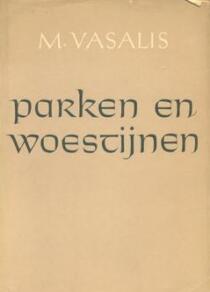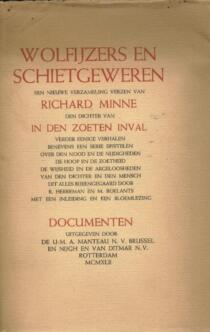In the famous poem Time, she describes a dream in which she lived more slowly than the oldest stone. From that perspective, the alternation of day and night is a constant flickering and the tides a rapid rise and fall. In short, by zooming out and observing the passage of time from near stillness, she realises both the desperate cruelty of time and the insignificance of humans. “How will I ever forget that?” the poet asks herself.
In the poem The Crickets, she describes a similar experience. The illusion of being able to step outside of time is abruptly destroyed:
Ondanks de schijn van eeuwigheid
in enkle stille ogenblikken
hoor ik voortaan een fijn, schor tikken,
word ik geschonden door het weten:
ook dit wordt langzaam opgesleten.
(Despite the appearance of eternity
in a few quiet moments
from henceforth I hear a subtle, raspy ticking
I am violated by knowing:
this too is slowly worn away.)
The last line is a poignant summary of life: being worn away. Vasalis’ focus on the subject of mortality entails, among other things, that she seems drawn to autumn and evening. Yet this debut collection – with only 21 poems – avoids being depressing. Just as she likes to use the stylistic device of the paradox in her poems (“I felt pained and well”), the mood of this volume is also paradoxical. Indeed, the autumnal atmosphere is accompanied by a constant escape from it, either through a sort of dreaminess or a wild burst of joy in life. Unsurprisingly, spring can serve as an antidote for autumn melancholy:
Ik had vergeten hoe het was
en dat de lente niet stil bloeien,
zacht dromen is, maar hevig groeien,
schoon en hartstochtelijk beginnen,
opspringen uit een diepe slaap,
wegdansen zonder te bezinnen.
(I had forgotten how it was
that the spring is not a silent flowering,
soft dreaming, but intense growing,
already passionate beginnings,
leaping out of a deep sleep,
dancing away without a thought.)
This passion was also felt by the critics, who gave the collection an enthusiastic reception in 1940. They discovered a poet who experiences life intensely, both the tragedies and the joys. The fact that it turned out to be a woman who wrote so ardently created an additional stir.
Vasalis has been popular among readers for decades and published many poems that became classics, such as The idiot in the bath. This poem is not only about a weak man who forgets all his worries when he takes a bath, but also about each and every one of us: how we are happy now and then when we can forget that we are just frightened idiots in stiff, hard clothes.
Vasalis’ poems are often inspired by anecdotal incidents (a storm, a bus ride, a passing brass band). Starting from her personal experience, she shows the reader how a deeper layer can be tapped in any occurrence, how every detail can tell us something about what lies behind the tangible reality. For the modern-day reader, the lack of a religious context for the spiritual dimension is appealing: Vasalis is not talking about God. It is nature in particular that awakens her spirituality. The low sun shining through the grass on a riverbank, the “white face of the silent moon”, a fierce thunderstorm that chastens her.
Vasalis’ poetry does not seem to age. Perhaps then she has achieved a small triumph over inexorable time.






